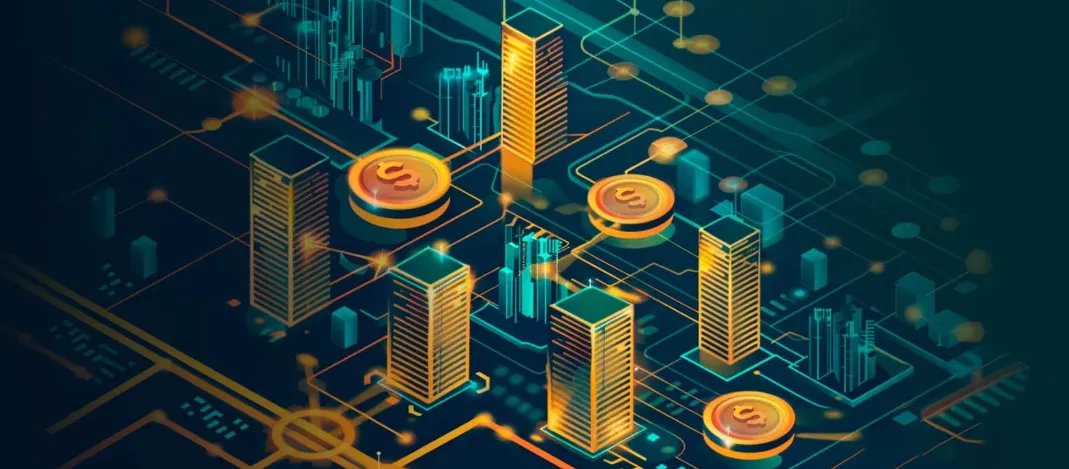Connecting digital and physical assets: The impact of TON on real estate tokenization
Introduction: What is tokenization in real estate?
Modern technology is transforming the real estate market, making it more accessible and transparent. One of the key innovations has been the emergence of tokenization, which allows physical assets such as buildings or land to be converted into digital tokens. What is tokenization? It is a method by which a physical object becomes a digitized asset that represents its value and ownership.
Tokenization in real estate offers unique perspectives for both owners and investors. Large properties can now be broken down into smaller pieces that can be easily transferred and sold. This makes the real estate market accessible even to those on a tight budget.
Tokenization definition involves not only thedigitization process but also the use of advanced technology to minimize costs and increase transparency. In this context, the TON blockchain in real estate becomes a key tool, ensuring the safety and security of data at every stage.

The Role of TON: Guaranteeing Security in Real Estate Tokenization
TON (The Open Network) blockchain technology plays a central role in real estate tokenization processes. Real estate tokenization requires a robust infrastructure that allows data to be captured, processed and protected, and TON meets these requirements perfectly.
Transparency and data protection
One of the most important benefits of using TON blockchain in real estate is the full transparency of all transactions. Thanks to the distributed ledger, every transaction is recorded on the blockchain, eliminating the possibility of falsification or loss of data.
This approach is especially relevant for real estate transactions, where the legal purity of documents is a key factor. Tokens representing stakes in properties are stored on the blockchain, and information about ownership rights and transaction history is securely protected. This makes decentralized property transactions not only secure, but also more efficient.
Reduced transaction costs
The benefits of asset tokenization include a significant reduction in costs. Traditional real estate transactions often require multiple intermediaries, such as notaries and lawyers, which increases costs and slows down the process.
Using TON blockchain allows for the automation of multiple transaction steps. With smart contracts, parties to a transaction can interact directly, eliminating the need for costly intermediaries. This makes real estate tokenization a cost-effective solution.
In addition, decentralization eliminates hidden fees and automated data checks speed up transactions, reducing the administrative burden.
Increased liquidity
In the traditional real estate market, transactions are often accompanied by low liquidity: it can take months to sell a property. Using tokenization in real estate, large assets can be divided into tokens that are quickly sold or exchanged on specialized digital platforms.
Tokenization meaning is to turn real estate into an easily managed digital asset available for trading. For investors, this means the ability to buy stakes in previously inaccessible properties. Owners, on the other hand, gain the flexibility to raise funds without having to completely dispose of the property.
Increased liquidity: Investments become more affordable
One of the key benefits of tokenization in real estate is increased liquidity. In the traditional real estate model, assets are large and often indivisible, making them difficult to sell or attract investment. With real estate tokenization, however, properties can be divided into digital tokens representing small fractions of the property’s value.
What is tokenization? It is the process of converting real assets into a digital form that makes it easy to exchange, sell or invest in even small shares of property. With TON blockchain technology in real estate, the process of tokenization becomes transparent and reliable.
Liquidity plays an important role for private investors who previously could not participate in large transactions due to high entry thresholds. Now, with decentralized property transactions, even small capitals can be invested in real estate, which significantly expands the range of potential market participants.

Transparency: Security and data protection
Transparency is an important element of successful tokenization. Traditional real estate transactions are often accompanied by complex paperwork and risk of fraud. However, TON blockchain in real estate provides strong data protection.
Tokenization meaning in this context is to create a digital version of property rights, where each transaction is recorded in an immutable blockchain. This eliminates the possibility of falsification or loss of data, giving the parties to the transaction full confidence in its legal purity.
In addition, real estate tokenization makes the process more transparent for all parties. Participants have access to a full set of data about the property, including ownership history, valuation and legal status. This not only speeds up decision-making, but also minimizes the likelihood of disputes.
Blockchain technology also plays an important role in security. Each transaction is verified using cryptographic algorithms, eliminating the possibility of unauthorized access. In summary, the benefits of asset tokenization are clear: transparency increases trust and security makes transactions reliable.
Cost reduction: Minimizing costs
The traditional real estate market is often associated with high administrative and transaction costs. The services of lawyers, notaries, banks and other intermediaries increase the cost of transactions and slow down their execution. Real estate tokenization using TON blockchain can significantly reduce these costs.
One of the main advantages of tokenization definition is the automation of processes. Thanks to smart contracts, many routine operations, such as verifying ownership or registering a transaction, are performed without human involvement. This reduces the cost of intermediaries and makes the process more efficient.
Decentralized property transactions implemented via blockchain also eliminate the need to pay additional fees. For example, buyers and sellers can interact directly, which reduces financial barriers and speeds up transactions.
In addition, reducing the administrative burden allows market participants to focus on strategic tasks, such as selecting objects for investment or developing projects. This makes the benefits of asset tokenization an important tool for optimizing costs and increasing profits.